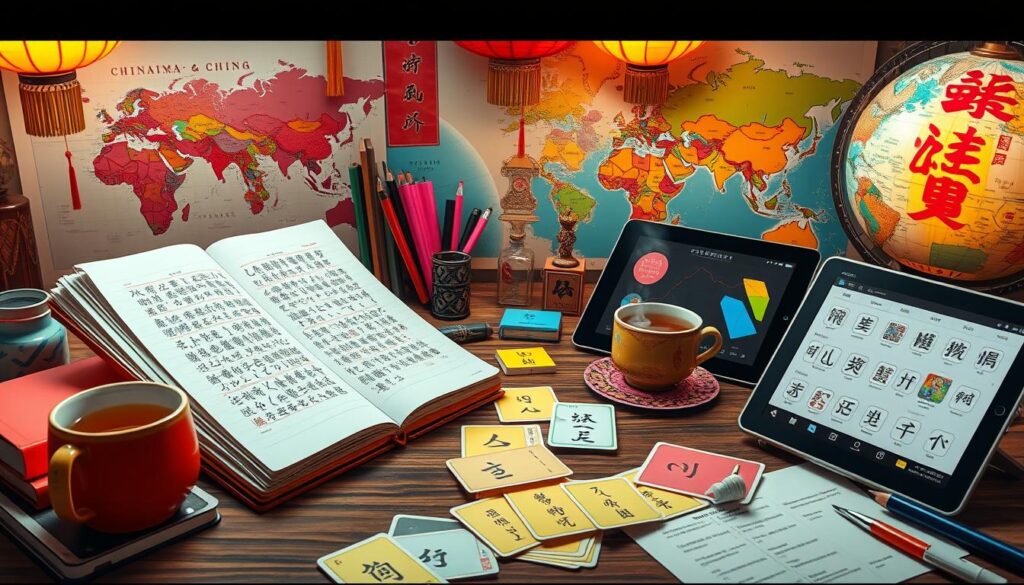Starting to learn a new language is both scary and thrilling. When deciding between Mandarin and Japanese, you’re choosing between two major Asian languages. Learn Mandarin or Japanese first? Each offers its own cultural and intellectual perks. Your choice might depend on your personal interests or goals. Maybe Japan’s dynamic culture draws you in, or China’s widespread language appeals to you more.
Many language lovers lean heavily towards Japanese because of anime. About 80% prefer Japanese for its cultural impact. Meanwhile, others pick Mandarin first to better understand other Asian languages. Yet, the choice also involves practicality. Resources like Lingq make learning Chinese easier, highlighting the importance of accessible learning tools.
Over 1 billion people speak Mandarin, but Japanese has 128 million speakers worldwide. The choice isn’t about numbers though. It’s about which language excites you more. Are you driven by a deep connection to the language, or are you looking at the practical benefits Mandarin can offer in business?
Your preference for Japanese grammar or Mandarin’s tones is a personal journey to becoming multilingual. Let your passion, career goals, and love for a challenge lead the way. Learning either language opens up a new world of opportunities.
The Role of Personal Interest in Your Language Journey
Your personal interest plays a key role when you focus on learning a new language. It might be because of cultural intrigue or entertainment. Whether you choose Mandarin or Japanese depends a lot on how the language and its culture fit your interests or career goals.
Exploring Cultural Connections
Mandarin and Japanese both have rich histories and cultures. For example, learning about Chinese history lets you understand traditions like the tea ceremony, ancient philosophies, and traditional medicine. Japanese culture, on the other hand, teaches you about its social customs, arts, and tech innovations, important in robotics and design.
Anime and Entertainment as Motivators
Anime hugely influences language choice, especially for the youth. It has made many interested in Japanese and motivated to learn more about the culture behind the anime stories. This interest often leads learners to explore Japan’s music, cinema, and literature. Discovering a language through entertainment makes learning fun and personal.
Comparing Cultural Engagements of Mandarin and Japanese
When comparing the cultural engagements of Mandarin and Japanese, you see different paths. Mandarin learners might explore ancient poetry or philosophical texts. But if you love Japanese, you might be drawn to Tokyo’s modern fashion or traditional tea ceremonies.
Mandarin Chinese and Japanese are not just languages; they are gateways to understanding complex and fascinating cultures.
| Cultural Element | Mandarin | Japanese |
|---|---|---|
| Historical Richness | Great Wall, Terracotta Army | Samurai era, tea ceremonies |
| Modern Influences | Technological advancements | Anime, fashion industries |
| Writing Systems | Hanzi | Hiragana, Katakana, Kanji |
| Global Economic Impact | Trade, finance markets | Automobile, electronics sectors |
When choosing which language to learn first, think about which culture and career paths you relate to more. Adding cultural interest to your language learning not only enhances your skills but also broadens your view of the world.
Learn Mandarin or Japanese First: Strategic Considerations for Language Learners
Choosing between Mandarin and Japanese can be tough for beginners. Your decision should consider several factors. These include your current language skills, your planned language learning sequence, and the unique challenges of both languages.
Existing Language Proficiencies and Learning Sequences
Your language background plays a key role in choosing which to learn first. For example, if you understand tonal languages, Mandarin might be easier for you. But if you prefer structured languages, you might find Japanese’s complex scripts more manageable.
Mandarin’s Tonal Complexity vs. Japanese Pronunciation
Mandarin appeals to over 900 million speakers but its tones are hard for learners. Each tone changes a word’s meaning, which can be difficult. Japanese pronunciation is simpler for English speakers. However, its honorifics and expression subtleties offer their own challenges. Your choice depends on which language matches your strengths.
The Writing Systems Challenge: Characters and Scripts
Mandarin and Japanese have tough writing systems for beginners. Mandarin’s thousands of characters each stand for a word or idea, very different from English. Japanese requires learning three alphabets: Kanji, Hiragana, and Katakana. This diversity makes starting Japanese challenging but also exciting.
In the end, whether you start with Mandarin or Japanese, it should fit your skills and desire to tackle specific language hurdles. Learning either language can enrich your mind and deepen your cultural insights.
The Economic and Political Influence of Mandarin and Japanese
Thinking about language learning for career benefits, the economic impact on language choice is huge. Mandarin and Japanese play big roles in the world economy. Each has unique perks based on different situations and job markets.
Mandarin is the world’s most spoken language. It gives a big advantage in global business, especially with China’s strong trade and political ties. For example, last year, China became Japan’s biggest trade partner. This shows the big economic impact on language choice in that area.
Japanese, meanwhile, lets you work with top tech and entertainment firms like Sony and Nintendo. This shows how choosing mandarin versus Japanese can steer your career in different industries.
The long history of economic dealings between China and Japan shows how these two languages are connected. Trade started in the 1860s. Early battles and trade have shaped their relationship for hundreds of years.
| Year | Event | Economic or Political Impact |
|---|---|---|
| 57 CE & 107 CE | First tribute missions from Japan to China | Opened diplomatic relations and cultural exchanges |
| 607-839 CE | State-sponsored missions sent to China | Strengthened ties, influenced Japanese bureaucracy and culture |
| 1993-2003 | Significant increase in China’s trade with other Asian countries | Boosted China’s economic influence across Asia |
| 2002 | China signed free trade agreement with ASEAN | Enhanced trade relations and economic integration within the region |
China and Japan also play key roles in regional deals like the “ASEAN plus three”. This group includes ASEAN members, China, Japan, and Korea. It shows why learning these languages is strategically important.
Understanding the history between these countries helps us see how language shapes careers and economies. Learn more about these interesting economic and political interactions and their effects on Sino-Japanese relations throughout history.
Analyzing the Global Presence and Number of Speakers
Starting to learn a new language for global talk is a big step. You should think about how many people speak the language and its international role. Mandarin has a huge global presence. It’s spoken by 929 million people as their first language. When we add people who speak it as a second language, that number goes beyond 1 billion.
This makes Mandarin the top native language in the world. It plays a key part in global talks. This is true in big economies like Mainland China, Taiwan, and Singapore.
Mandarin Chinese in Global Communication
Thinking about Mandarin’s global role shows its reach goes beyond just numbers. It’s important for big meetings and in the world of international business. This shows Mandarin is very important for the economy and politics. Learning Mandarin helps you connect with a deep culture. It also gives you an advantage in a world that’s more connected every day.
Japanese and Its International Reach
Japanese is spoken by 123 million people, which might seem small next to Mandarin. But its global role is still very strong. This is thanks to Japan’s powerful economy. Japanese culture also impacts the world through media, tech, and arts. This makes its global stance even stronger.
By learning Japanese, you dive into a world filled with tradition and new ideas. You also get close to a language that’s growing its global influence. For tips on choosing between Spanish or Japanese, check out LanguageYard.


